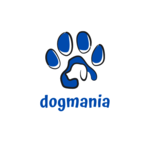5 Signs Your Dog Might Benefit from a Grain-Free Diet
As dog owners, we always strive to provide the best nutrition for our furry friends. With an increasing variety of dog food options available, understanding your dog's dietary needs can be challenging. One trend gaining popularity is the grain-free diet. But how do you know if this is the right choice for your dog? Here are five signs that your dog might benefit from a grain-free diet.
1. Chronic Digestive Issues
Persistent Diarrhea or Loose Stools
If your dog frequently experiences diarrhea or loose stools, it could be a sign that their digestive system is having trouble processing grains. Grains like wheat, corn, and soy can be difficult for some dogs to digest, leading to chronic gastrointestinal issues. Switching to a grain-free diet can alleviate these symptoms by eliminating potential irritants from your dog's food.
Excessive Gas
While occasional gas is normal for dogs, excessive gas can indicate a dietary problem. Dogs that struggle with digesting grains often produce more gas, which can be uncomfortable for both the dog and the owner. A grain-free diet may help reduce this issue by providing easier-to-digest ingredients.
2. Skin and Coat Problems
A healthy diet is essential for maintaining a shiny, healthy coat. If your dog's coat is dull or thinning, it might be due to an allergic reaction to grains or a lack of essential nutrients. Grain-free dog foods often contain higher-quality proteins and fats, which can improve the condition of your dog's coat.
3. Frequent Ear Infections
Recurring Infections
Frequent ear infections can be a sign of food allergies, with grains being a common culprit. If your dog is prone to ear infections, you may notice symptoms such as head shaking, ear scratching, or a foul odor from the ears. By removing grains from your dog's diet, you can potentially reduce the occurrence of these infections.
Yeast Infections
Dogs that are allergic to grains can also suffer from yeast infections, which can manifest as persistent ear or skin infections. A grain-free diet can help by eliminating the allergens that contribute to these infections and promoting a healthier balance of bacteria and yeast in your dog's body.
4. Low Energy Levels
5. Behavioral Changes
Anxiety and Hyperactivity
Diet can have a significant impact on a dog's behavior. Some dogs may exhibit anxiety, hyperactivity, or other behavioral changes due to food allergies or sensitivities. Grains can contribute to these issues by causing inflammation or affecting blood sugar levels. A grain-free diet can help stabilize your dog's mood and behavior by providing a more balanced nutritional profile.
Improved Focus and Training
A balanced diet is crucial for cognitive function and training responsiveness. If your dog has difficulty focusing or seems easily distracted during training sessions, a grain-free diet might help improve their concentration. The high-quality proteins and fats found in grain-free foods support brain health and cognitive function, making it easier for your dog to learn and retain new commands.
Conclusion
Determining the best diet for your dog can be a process of trial and error, but recognizing the signs that your dog might benefit from a grain-free diet is a crucial step. Chronic digestive issues, skin and coat problems, frequent ear infections, low energy levels, and behavioral changes are all potential indicators that your dog may have a sensitivity or allergy to grains.
Before making any dietary changes, it's essential to consult with your veterinarian. They can provide personalized advice and ensure that your dog's new diet is nutritionally balanced. Transitioning to a grain-free diet can bring significant improvements in your dog's overall health and well-being, leading to a happier, healthier life for your furry friend.
By paying close attention to your dog's symptoms and working with your vet, you can make informed decisions about their diet and provide the best possible nutrition for their needs.



leave me your thoughts here